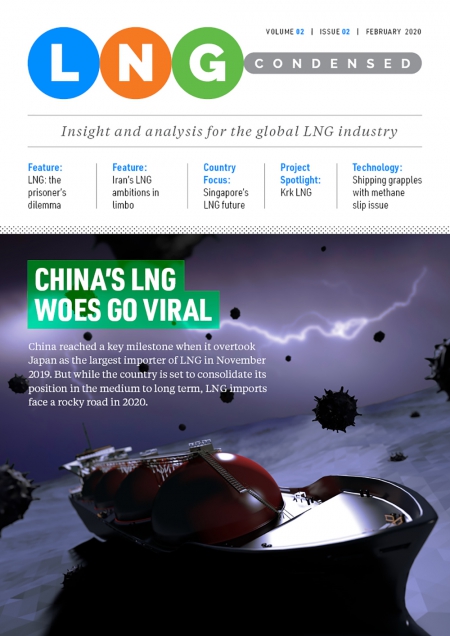Editorial: Coronavirus Threatens Long-term SPAs [LNG Condensed]
Coronavirus is having a serious impact on the LNG market and potentially could lead to the termination of long-term LNG sales and purchase agreements (SPAs).
The virus has hit China at a particularly bad time. LNG Condensed last summer warned readers that suppliers had much to fear from a warm northern hemisphere winter. All of the largest LNG markets – Europe, Japan, South Korea and China – are in the northern hemisphere and sellers depend on a seasonal upswing in demand, starting in September/October, to boost volumes and prices as buyers stock up to meet winter heating and power needs.
|
Advertisement: The National Gas Company of Trinidad and Tobago Limited (NGC) NGC’s HSSE strategy is reflective and supportive of the organisational vision to become a leader in the global energy business. |
However, US National Centers for Environmental Information (NCEI) data show that January 2020 was the warmest on record, with land temperatures on average more than 3ºC higher than normal across both Europe and Asia. December 2019 was the second warmest on record, while November 2019 came in at eleventh.
This phenomenon is technically described as an ‘anomaly’, i.e. a deviation from the norm, but the pattern of anomalies shows a clear upward trend, according to NCEI. Winter heating demand far outweighs increased cooling demand from hotter summers, so warmer weather will reduce growth in LNG demand and to some extent even out the seasonal variation.
SPOT VERSUS CONTRACT LNG
While the LNG market can be expected to take seasonal demand in its stride, the warm temperatures come at a time of rapidly rising supply, largely now from the US. The US Energy Information Administration (EIA) estimated in January that US LNG exports averaged 52bn m3 in 2019, up from 31bn m3 in 2018. The EIA forecast an increase to 67bn m3 in 2020 and 80bn m3 in 2021 on average respectively, when US baseload capacity will have reached a whopping 105bn m3.
With a slump in demand growth and quickly increasing supply, it is no surprise that LNG spot prices are in the doldrums even in the heart of winter. Buyers will be eyeing the low price of spot LNG and making the inevitable comparison with the much higher prices they are paying for LNG on long-term contracts indexed to oil.
Chinese buyers are requesting cargo delays and diversions as a result of quarantine measures and a lack of available staff to unload, but there are also downstream factors at play. Reduced industrial activity as a result of quarantine measures and ‘social distancing’ mean less gas demand and full LNG storage tanks. As a result, even if the terminal and other staff were available, Chinese LNG terminals may now lack the capacity to absorb the usual volumes of LNG.
FORCE MAJEURE
According to press reports, China’s biggest LNG importer Cnooc declared force majeure on some of its contracts in February – a step beyond requests for
delays and diversions.
An epidemic is generally listed in SPA agreements as a legitimate reason for force majeure, if measures or situations arise from it that prevent a buyer from meeting its contractual obligations, for example a lack of technically qualified staff to perform operations. Some contracts also refer to unforeseen “acts of government”, which could include quarantine measures.
However, downstream bottlenecks, resulting from a slump in demand, are usually not considered legitimate causes. The question of whether a force majeure is the direct result of the epidemic preventing a buyer from meeting its contractual obligations or the result of downstream changes in demand is one likely to become the subject of arbitration.
Of even more concern though is that, according to international law fi rm K&L Gates, some long-term SPAs may provide for either party to terminate the agreement in the event of a prolonged period of force majeure.
With spot LNG prices very low and a strong likelihood they will remain so as US supply increases, a Chinese buyer may see force majeure not just as a means of resolving current difficulties, but exiting the SPA entirely as an economically-attractive option longer term.
For the supplier this could prove calamitous as they have borrowed money on the back of long-term agreements expected to provide a reliable income in contrast to the vagaries of the spot market. LNG suppliers need to review the wording of their SPAs and prepare for the worst.
LNG Condensed Volume 2, Issue 2 is now available to NGW Subscribers. If you are a subscriber please click here to access the publication. If you would like to register please visit our subscription page.




